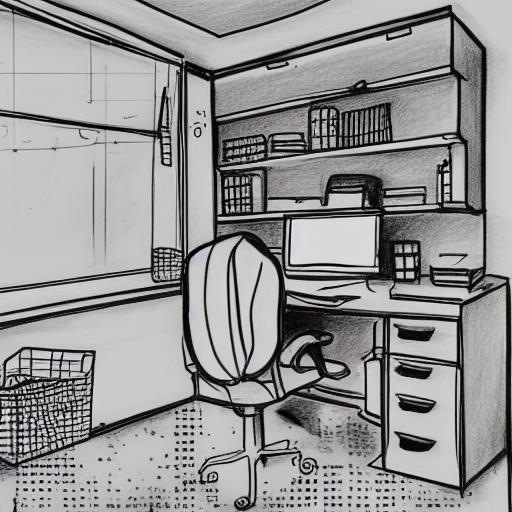There are several benefits to decluttering your office. Not only does it reduce stress, it also decreases the risk of data breaches. Decluttering also helps you switch gears from working to home, making you feel like a new person. And, of course, it also makes you more productive.
Decluttering reduces stress
Decluttering your office can help you feel less stress and improve your productivity. A cluttered office can make it difficult to focus and make work difficult. It can also lead to burnout and emotional exhaustion. In fact, a recent study published by DePaul University’s Joseph Ferrari shows that clutter can cause physical and mental health problems.
Decluttering your office will also help you save time, money, and energy. The process will help you organize your space more efficiently and reduce the amount of time you spend looking for items. Your employees will also be more productive and focused if there is less clutter around. If you are considering making a decluttering office, you should know that it may be a complex process. But it’s worth the effort.
According to research, the more clutter you have in your office, the more stress you are likely to feel. According to research from the Institute of Challenging Disorganization, having an untidy office increases the risk of burnout and tension. Decluttering your office could be the first step in reducing stress and anxiety.
Decluttering your office will reduce stress by making you feel happier and calmer. It can also improve your overall mental health. It’s essential to keep your office space organized to maximize your productivity. A desk should be used for work, and it should have minimal items on top to facilitate working. Think about what you use regularly, and then declutter accordingly.
Decluttering your office will help you relieve the mental pressure created by a lockdown. It will help you feel more productive and less stressed. You’ll be glad you did! With the time and energy you save, you’ll be much more productive. In addition, your office will look much nicer than before.
Besides improving your health, decluttering your home will improve your mood and increase your productivity. Research shows that people with cluttered homes are more likely to be depressed and anxious.
Reduces risk of data breaches
Many companies collect and keep old documents that may no longer be needed. These old documents not only take up valuable workspace space, but they also pose an information security risk. Third parties can gain access to these documents and use the information to commit fraud, which can compromise business finances. According to a report by the data breach law firm DLA Piper, an average of one data breach was discovered in Europe every five minutes. De-cluttering your office and destroying old documents is a proactive way to reduce your risk of information breaches.
Not only will de-cluttering your office make it easier to keep your workspace clear and tidy, but it will also protect your company’s reputation. This will reduce the risk of identity theft and insider fraud. In addition, de-cluttering will make your workspace safer from data breaches and security risks caused by human error.
Keeping confidential information in lockboxes is another effective method of preventing data breaches. It is important to regularly audit all digital information and make sure that everything is secure. Emails and files should be filed properly and files should be deleted once they are no longer needed. Information should not be stored on open storage devices, such as laptops, tablets, and phones. In addition, old storage devices should be securely disposed of when no longer needed. Finally, employees should follow a Clean Desk Policy which requires them to tidy up their desks at the end of the day.
Another benefit to de-cluttering your office is its environmental impact. Today’s consumers are becoming more environmentally conscious, and employees are increasingly demanding companies who are environmentally responsible. Recycling old documents and shredding unwanted files will help your company’s green credentials. A tidy office is more likely to attract clients and visitors. Moreover, it will reduce the risks of data breaches and human error.
A clean desk policy reduces the risks of data breaches by encouraging employees to store confidential documents and files in a secure location when they are not in use. It also decreases the risk of employee theft and negligence, which are two common reasons for data breaches. In addition, a clean desk policy prevents employees from misusing confidential documents and reduces the time they spend searching for documents.
Makes you feel like a new person
De-cluttering your office is a great way to reduce your stress levels. Clutter can cause distractions that decrease your productivity and efficiency. For example, you might not be able to concentrate on your work because you cannot see your computer screen or your keyboard in front of you. Moreover, clutter can make it difficult to move around.
Organizing your desk and workspace can help you focus on your work and feel less anxious about your job. When you are focused, you won’t be distracted by the mess on your desk. You can also make it easier to find the files you need.
Besides making your work space more productive, de-cluttering also helps you sleep better. Studies have shown that people who sleep in disorganized rooms have poor quality of sleep. Moreover, they are prone to rest disturbance. Therefore, it is important to get enough sleep so that you can work properly.
A clean workspace allows you to focus on your work and reach your full potential. It is also more comfortable to work in a tidy space. And if you work from home, de-cluttering your office can be a great way to increase your productivity.
Makes you switch gears from work to home
A simple way to switch gears from work to home is to focus on a different mindset. This way of thinking makes you feel more relaxed and in control and helps you focus on relationships and activities. It also helps you divide your thoughts and apply them to the right environment. This will make the transition from work to home much easier.












